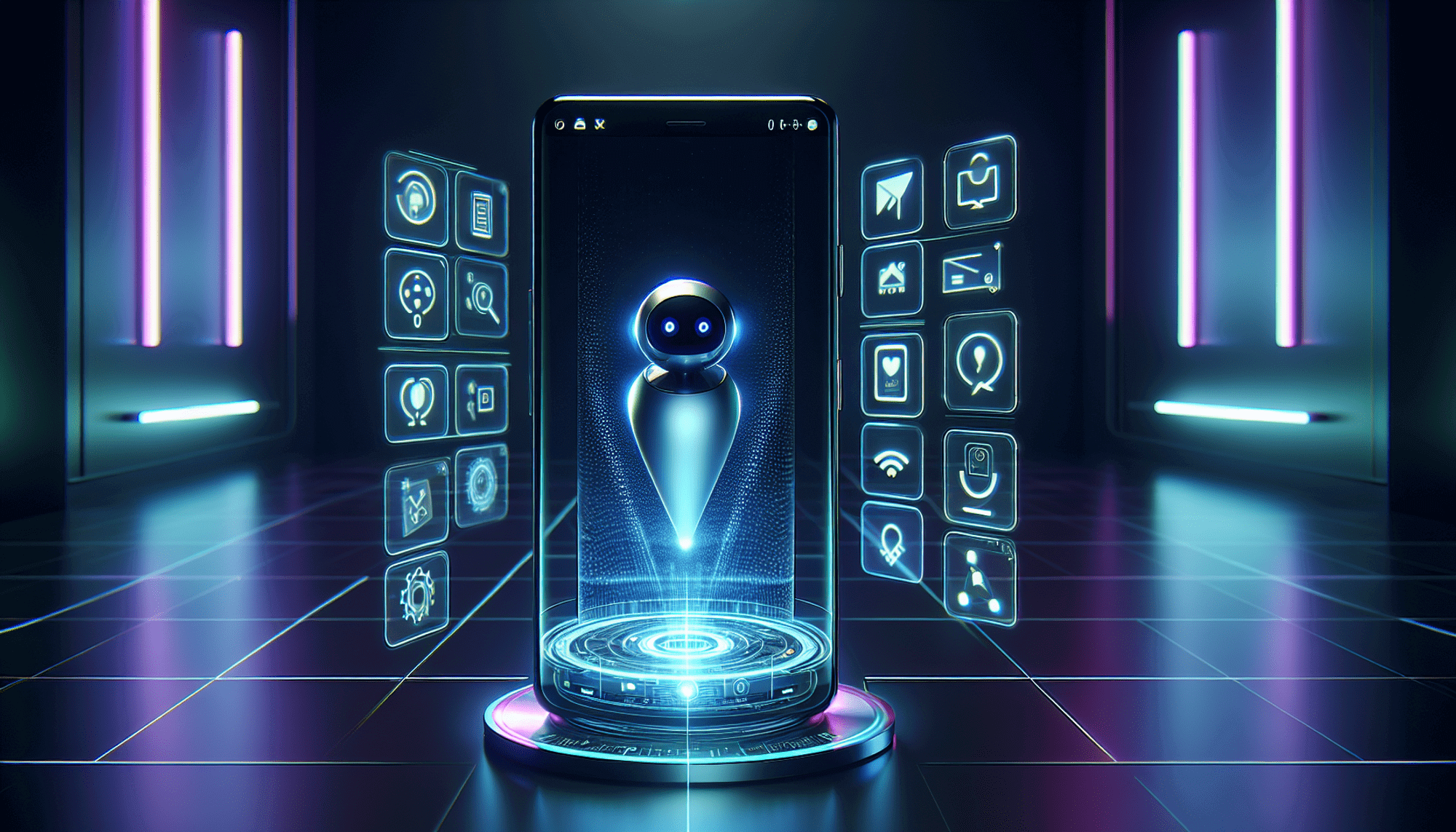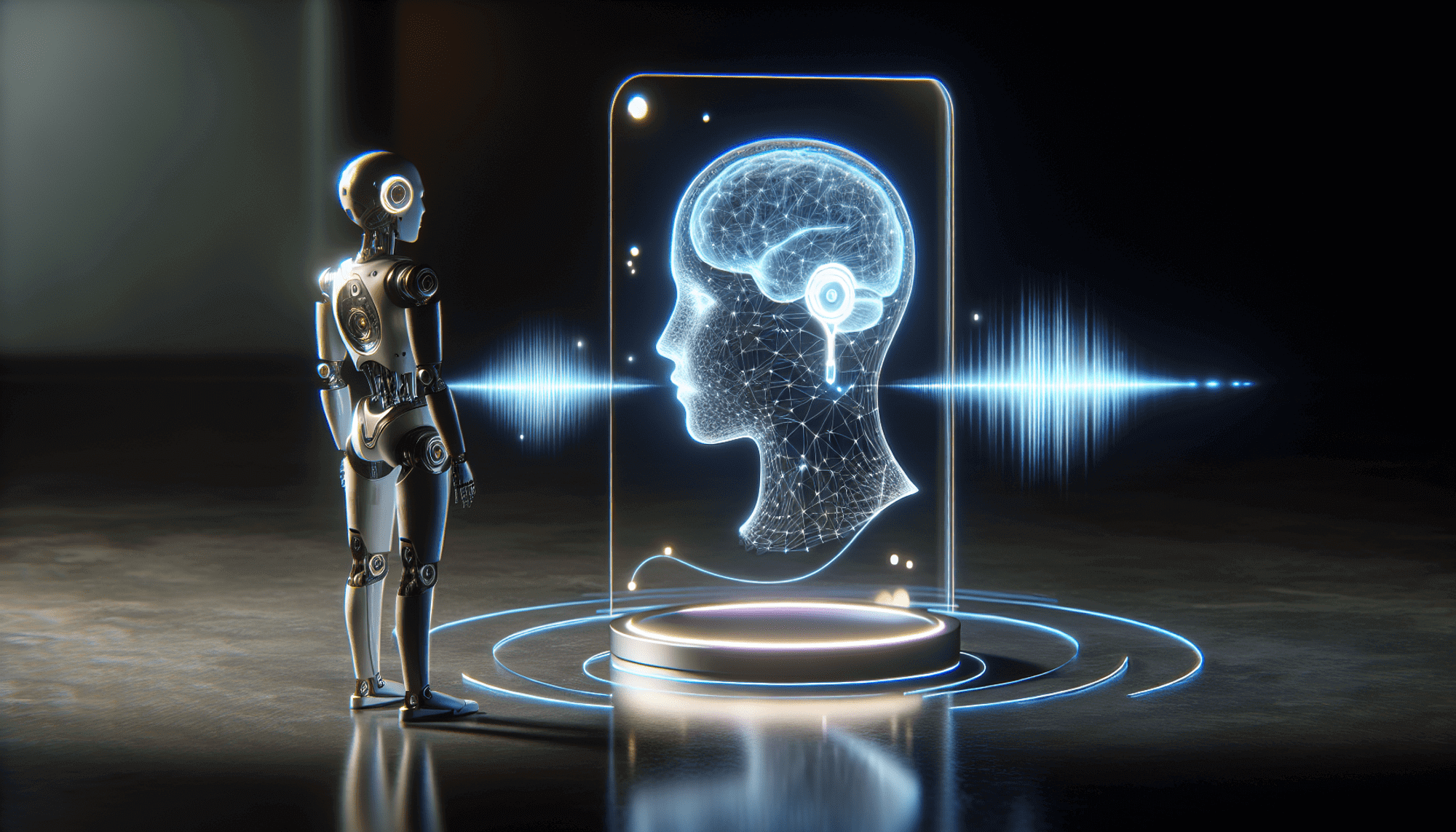






Table of Content:
The Impact of AI Calls: Revolutionizing Communication

In recent years, the rise of artificial intelligence (AI) has had a profound impact on various aspects of our lives, including communication. AI-powered technologies are increasingly being used to enhance and revolutionize how we communicate with each other. One area where this is particularly evident is in AI calls.
Understanding AI Calls
AI calls refer to telephone or video calls that are facilitated by AI technology. Instead of interacting with a human operator or receptionist, users now have the option to engage in conversations with AI-powered systems. These systems are designed to understand and respond to human speech, allowing for a more efficient and personalized communication experience.
AI calls have revolutionized the way we communicate. Gone are the days of waiting on hold for a human operator to assist us. With AI-powered virtual assistants or chatbots, we can now get instant responses to our queries or requests. Whether it's scheduling an appointment, ordering a product, or seeking technical support, AI calls have made our lives easier and more convenient.
What are AI Calls?
AI calls are a form of communication where AI technology is utilized to automate and streamline the calling process. They often involve AI-powered virtual assistants or chatbots that are programmed to understand and respond to human queries or requests. AI calls can be made from various devices, including smartphones, tablets, or even smart speakers.
Imagine this scenario: you're driving home from work and suddenly remember that you need to make a reservation at your favorite restaurant for a special occasion. Instead of having to pull over and make a phone call, you can simply use your smartphone to initiate an AI call. The virtual assistant on the other end will understand your request, check for availability, and make the reservation for you, all without you having to lift a finger.
AI calls have also become increasingly popular in customer service. Instead of waiting on hold for long periods of time, customers can now engage in AI calls to get the assistance they need. These virtual assistants are trained to handle a wide range of inquiries, from troubleshooting technical issues to providing product recommendations. With AI calls, businesses can provide faster and more efficient customer support, leading to higher customer satisfaction.
The Technology Behind AI Calls
AI calls rely on cutting-edge technologies such as natural language processing (NLP) and machine learning. NLP enables AI systems to understand and interpret human language, allowing them to comprehend the context and intent behind a conversation. Machine learning algorithms enable these systems to continuously learn and improve their conversational abilities based on user interactions.
Natural language processing is a complex field that involves teaching computers to understand and generate human language. It encompasses various tasks, including speech recognition, language translation, and sentiment analysis. By leveraging NLP, AI calls can accurately understand and respond to user queries, providing a seamless and natural conversation.
Machine learning plays a crucial role in the development of AI calls. These systems are trained on vast amounts of data, allowing them to recognize patterns and make predictions. As users interact with AI calls, the machine learning algorithms analyze their responses and adjust their models accordingly. This continuous learning process enables AI systems to improve their performance over time, delivering more accurate and personalized responses.
AI calls are not only transforming the way we communicate but also paving the way for future advancements in AI technology. As researchers and developers continue to innovate in this field, we can expect AI calls to become even more sophisticated and capable. From voice recognition to emotion detection, the possibilities are endless.
The Evolution of Communication
Communication has come a long way from its early forms of telegrams and landline calls. The advent of AI calls represents a significant milestone in the evolution of communication, showcasing the capabilities and potential of AI technology to transform how we connect with others.
But how exactly did we get here? Let's take a closer look at the journey from traditional calls to AI calls.
From Traditional Calls to AI Calls
Traditional phone calls required human operators to manually connect calls and handle inquiries. This process was often time-consuming and could lead to delays or miscommunications. However, with advancements in technology, the introduction of automated switchboards revolutionized the way calls were made.
Automated switchboards allowed for a more streamlined and efficient process, eliminating the need for human operators to physically connect calls. Instead, callers could simply dial the desired number, and the switchboard would automatically route the call to the intended recipient.
Fast forward to the present day, and we have AI calls. These calls take automation to a whole new level by utilizing artificial intelligence to handle various aspects of the communication process. AI systems can now handle multiple calls simultaneously, reducing wait times and improving overall efficiency.
Imagine a world where you can make a call without having to wait on hold or deal with the frustration of being transferred from one operator to another. AI calls make this possible, offering a seamless and hassle-free communication experience.
The Role of AI in Modern Communication
In today's fast-paced and interconnected world, AI plays a crucial role in modern communication. AI-powered virtual assistants like Siri, Google Assistant, or Amazon's Alexa are now common features of smartphones and smart speakers. These assistants have become our go-to companions, helping us navigate through our daily lives.
With just a simple voice command, these virtual assistants can make calls, send messages, or even perform tasks such as setting reminders or booking appointments. They have become our personal concierges, saving us time and effort by handling various communication-related tasks.
Moreover, AI technology has also made significant advancements in natural language processing, allowing virtual assistants to understand and respond to complex queries. This has transformed the way we interact with technology, making communication more intuitive and user-friendly.
As AI continues to evolve, we can expect even more exciting developments in the field of communication. From enhanced voice recognition to real-time language translation, the possibilities are endless.
So, the next time you make a call or ask your virtual assistant for help, take a moment to appreciate the incredible journey that communication has taken. From the days of manual switchboards to the era of AI calls, we are witnessing a revolution that is reshaping the way we connect with others.
The Benefits of AI Calls
AI calls offer several benefits that contribute to revolutionizing communication. These benefits include improved efficiency, enhanced productivity, and increased accessibility and inclusivity for a wide range of users.
Efficiency and Productivity
AI calls eliminate the need for manual call routing and handling, allowing for faster and more efficient communication. AI systems can route calls based on specific criteria, such as the caller's preferences or the nature of the inquiry, ensuring that the call reaches the appropriate recipient or department without delay. This streamlines the communication process and enables businesses to save time and resources.
Accessibility and Inclusivity
AI calls can significantly improve accessibility and inclusivity in communication. People with hearing or speech impairments can benefit from AI systems that can understand and respond to text-based inputs. Additionally, AI-powered translation services can facilitate multilingual conversations, bridging language barriers and enabling global interaction.
Potential Challenges and Solutions
While AI calls offer many advantages, they also come with their own set of challenges. These challenges range from privacy and security concerns to technical limitations that need to be addressed to ensure the widespread adoption and success of AI calls.
Privacy and Security Concerns
One of the main concerns surrounding AI calls is the privacy and security of personal information. Users may be apprehensive about sharing sensitive data with AI systems, particularly when it comes to financial or personal matters. To address these concerns, strict data protection measures, such as encryption and secure protocols, should be implemented to safeguard user information and ensure confidentiality.
Overcoming Technical Limitations
Despite significant advancements, AI technology still faces certain technical limitations that can impact the quality of AI calls. These limitations include difficulties in accurately understanding complex queries, recognizing different accents or dialects, and handling ambiguous or nuanced language. Ongoing research and development efforts are essential to overcome these limitations and improve the overall effectiveness of AI calls.
The Future of AI Calls
The future of AI calls is promising, with exciting trends and developments on the horizon. As AI technology continues to advance, the impact of AI calls is likely to extend beyond individual communication and tackle more complex tasks in various industries.
Predicted Trends and Developments
Experts predict that AI calls will become even more seamless and natural in the future. AI systems will continue to improve their conversational abilities, making interactions with virtual assistants or chatbots indistinguishable from human conversations. Additionally, AI calls may integrate other emerging technologies, such as virtual reality or augmented reality, further enhancing the communication experience.
Impact on Various Industries
The impact of AI calls is not limited to personal communication. Various industries can benefit from the integration of AI technology into their communication processes. For example, customer service departments can leverage AI calls to provide round-the-clock support and automate routine inquiries, freeing up human agents to handle more complex issues. Healthcare providers can utilize AI calls for telemedicine and remote consultations, expanding access to medical services.
In conclusion, AI calls are revolutionizing communication by leveraging AI technology to enhance efficiency, accessibility, and productivity. While challenges persist, advancements in AI and ongoing development efforts are driving the future of AI calls, which is poised to have a significant impact on various industries and transform the way we connect with one another.










